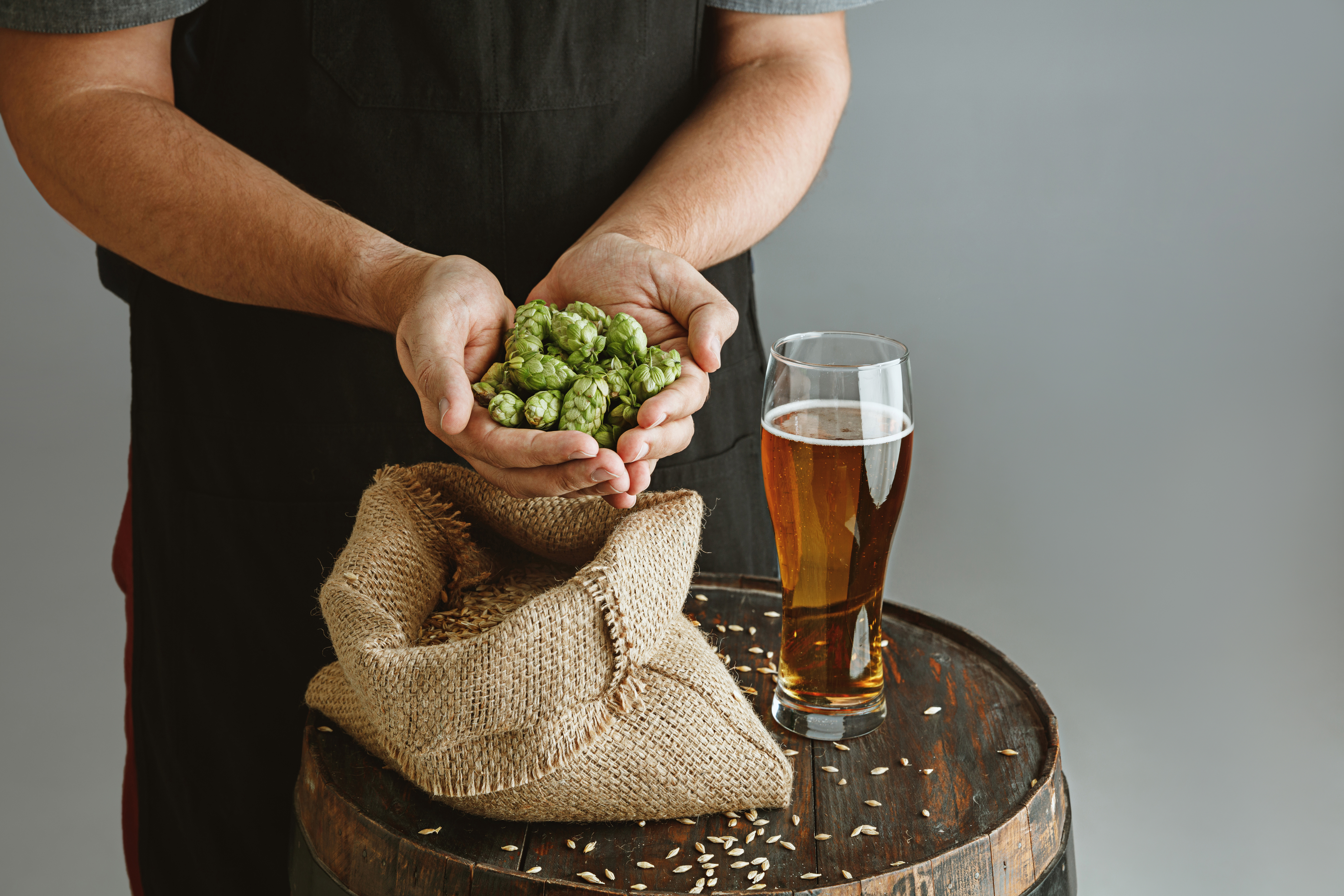
Many celebratory events and festive gatherings are difficult to imagine without the accompaniment of alcohol. Some drinks, such as sparkling wines and champagne, seem to be created precisely for such special life events. Many of us enjoy relaxing with a martini or whiskey with friends at the end of the workweek. There are those who have a glass of red wine every day "to improve their overall well-being." Among us, there are also alcohol connoisseurs who taste and collect elite and vintage alcoholic beverages.
But there is another point of view on this matter...
People who argue in favor of limiting alcohol consumption claim that any beverage containing ethanol requires careful consumption due to possible negative health consequences. While numerous dissertation studies have been written on the harmfulness of alcoholic beverages, the benefits of alcohol are not yet fully understood. Therefore, this topic remains the subject of further research to this day.
After analyzing the results of numerous scientific experiments conducted by researchers from different countries, it can be concluded that there is still some benefit to consuming small doses of quality alcohol without the addition of flavorings, colorants and other preservatives.
In this article, we will discuss the impact of alcoholic beverages on the human body, explore whether beneficial alcohol exists, and address how much alcohol is considered beneficial.
The impact of alcohol on the human body

Our body functions as a well-coordinated system with its own level of protection against poisons and toxins. It's worth noting that every day during the digestion of carbohydrates in the gastrointestinal tract, a small amount of ethanol is constantly formed. This alcohol is immediately neutralized by the liver, so it doesn't pose a threat to the overall body.
During alcohol consumption, only 5% of ethanol can be immediately eliminated from the body without harm to health. The remaining 95% freely enter the gastrointestinal tract and from there, through the bloodstream, are distributed to all organs.
Up to 10% of alcohol is excreted from the body unchanged through the kidneys, lungs and skin. The majority of it is metabolized in the liver with the help of the enzyme alcohol dehydrogenase, which converts alcohol into acetaldehyde. Acetaldehyde is a toxic compound that enters every organ. It has the most negative impact on the nervous system, liver and kidneys.
Most of the alcohol accumulates in the brain (the ethanol concentration in the brain is 1.75 times higher than in the blood). Here, it reduces the activity of nerve cells, thus producing a calming effect, while also stimulating the production of endorphins (happiness hormones) and dopamine (a neurotransmitter that activates pleasure centers). This leads to the onset of euphoria in a person.
In the female body, there is less fluid compared to the male body, which means that the concentration of alcohol in it is higher. Consequently, the degree of toxicity is also higher. Additionally, a woman's body produces fewer enzymes that metabolize alcohol, so it takes more time to eliminate it.
It's worth noting that humans adapt fairly quickly to alcoholic beverages. When ethanol enters the body, the organism begins to work actively to neutralize and eliminate it as quickly as possible.
What amount of alcohol is beneficial

Recommended norms provide only approximate information. Each person should have an individual approach, depending on their own enzyme activity, gender, age, weight, chronic illnesses, and more. It's known that the impact of alcohol on a person depends on the quantity of alcohol consumed at one time or over a certain period. Therefore, be attentive to your body. Consume only quality alcohol in small portions and monitor your well-being, not exceeding the recommended doses, which are equivalent to daily consumption of ethyl alcohol (96%): for men - 20 ml, for women - 10 ml.
This is equivalent to:
- 150 ml of wine (12%);
- 40 ml of strong alcohol (40%);
- 340 ml of beer (5%).
It's also important to have at least 3 alcohol-free days per week.
What do researchers from different countries say?

Scientific research by British scientists from Harvard University in the year 2021 shows that people who consume alcohol in recommended doses, on average, live 10 years longer compared to those who do not consume it at all. This is explained by the fact that alcohol has a calming effect on the nervous system, helps normalize blood pressure, and supports the immune system. The key rule is the even distribution of alcoholic beverages: 1-2 servings per day, avoiding excessive consumption and not making a habit of heavy drinking on Fridays.
In China, every third man does not consume alcohol at all, and among women, there are even fewer alcohol enthusiasts. Alcoholic beverages cause unpleasant reactions and worsen their well-being. Later, scientists from the University of Oxford, Peking University, and the Chinese Academy of Medical Sciences found that many Chinese people have a genetic factor that deters them from consuming alcohol.
In France, the majority of the population still holds the belief that wine contributes to calming the nervous system and is an excellent remedy for insomnia. Therefore, according to the old French tradition, a glass of wine is served with lunch almost every day.
As a result of a 40-year experiment conducted by the scientist and practising physician T.J. Kleofas from the Netherlands, it was noted that people who periodically consume alcohol in recommended doses have a stronger immune system and a longer lifespan.
Thus, research in different countries demonstrates that the consumption of quality alcohol in small doses provides a positive influence of alcohol on the human body. However, it's important to note that there is no unanimous opinion regarding the permissible daily alcohol intake. In the UK, the norm is considered to be 8 ml of pure alcohol per day, which corresponds to 16-18 ml of vodka or up to 40 ml of dry wine. In the US, they have calculated the permissible daily dose to be 14 ml, which means 30 grams of bourbon or vodka, or 60-70 grams of wine. In Japan, the recommended norm is 20 ml of pure alcohol.
These calculations are presented on a daily basis. However, it is strongly discouraged to consume alcohol daily. The maximum is 3 times a week for women and 4 times for men.
What makes alcohol harmful

- The amount of ethanol consumed - the larger the dose, the worse the consequences.
- The degree of purification of ethanol - the amount of harmful impurities in its composition.
- Additional colorants, preservatives, flavor enhancers, and gas bubbles.
Buy only quality alcohol! To protect yourself from counterfeits, trust only specialized stores and duty-free shops. There, all products undergo thorough checks and quality control, so the likelihood of counterfeits is eliminated.
On Mydutyfree.net, you can make a pre-order and pick it up on the day of crossing the border at a special duty-free store counter. The assortment includes only 100% original and high-quality alcohol from world-renowned brands.
How to reduce the negative effects of alcohol

- Drink more water - alcohol has the ability to dehydrate the body. So, before consuming strong alcoholic beverages, prepare by drinking an additional 1-2 liters of water.
- Drink alcohol on a full stomach - food not only protects the stomach lining from direct contact with ethyl alcohol but also slows down its absorption. This gives the body time to gradually eliminate all toxic metabolites.
- Avoid overeating fatty foods - as mentioned earlier, food protects the stomach lining from excessive irritation and rapid alcohol absorption, but fatty products put additional strain on the liver and pancreas.
- Monitor your pace - choose an optimal dose for yourself and stretch it over time.
- Be cautious with carbonated alcoholic beverages and cocktails with sweet syrups - carbon dioxide and sugar contribute to alcohol absorption and, thus, accelerate intoxication.
Non-harmful alcohol

Red Wine
This beverage comes to mind for most people when it comes to beneficial alcohol. Natural red wine is rich in antioxidants, bioflavonoids, and vitamins from the B and K groups, which strengthen blood vessels and the heart, lower cholesterol levels, maintain normal blood pressure, and promote better brain function. A glass of red wine is also recommended for people with anaemia, as it helps with dizziness and supports blood formation processes in the body.
Sangria
This Spanish drink has a unique flavor. One of its main features is the combination of wine and aromatic fruits, giving it a refreshing and rich taste. Additionally, thanks to the wine and fruits, sangria contains a large amount of vitamin C and antioxidants, making it not only a tasty but also a healthy beverage.
Cognac
The effect of cognac on the human body directly depends on its quality. 20 grams of cognac dilate blood vessels, normalize blood pressure. Tannins found in alcohol help absorb vitamin C. Cognac also stimulates appetite and is effective during the cold season.
Unpasteurized craft beer without additives
This beverage has long been of interest to researchers, and their findings are impressive. It has been discovered that moderate consumption of dark varieties of beer can reduce the risk of cardiovascular diseases, including the formation of blood clots. This may be explained by the fact that unpasteurized craft beer contains a significant amount of antioxidants.
Real beer is always made from natural ingredients such as hops (which contain phytohormones) and malt from wheat or barley (rich in beneficial minerals and vitamins). To maintain good health, it is important not to consume more than one bottle (330 ml) of beer per day and not more than twice a week.

It is important to consider that alcohol affects each person's body differently, and the degree of this effect is individual. If you aim to maintain longevity, robust health, and uplift your mood, do not deny yourself alcohol, but choose quality beverages and consume them in moderation. A balanced approach and mindful attitude toward alcohol consumption can help you achieve these goals.